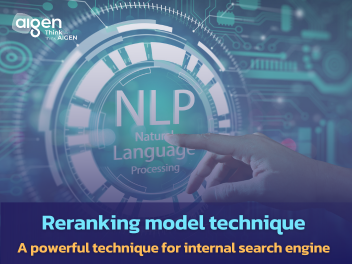What is Electronic Identity Verification (e-KYC)?
The issue of personal data breaches is a growing concern, with society closely watching how both public and private sectors address it. Prolonged inaction could lead to significant damage, not to mention the potential impact on public trust in service-providing organizations.
However, thanks to continuous technological advancements, there’s an effective solution to this problem: the “Smart Identity Verification System,” which incorporates both KYC and e-KYC processes. But how do these two differ, and which one is better suited for your business? Let’s find out.

What is KYC?
KYC stands for Know Your Customer. It refers to the process businesses use to verify the identity of their customers during initial registration and subsequent transactions. Today, various laws require businesses to implement KYC to protect consumer rights, comply with anti-money laundering laws, and prevent terrorism financing, among other things.
The KYC process is essential and should not be overlooked. It can benefit businesses in several ways:
- Boosts Customer Confidence: KYC assures customers that the service provider adheres to legal standards and maintains strict security measures to protect them from potential risks.
- Reduces Business Risk: KYC minimizes the risk of businesses facing lawsuits or penalties for involvement in illegal activities conducted through their services.
- Enhances Operational Efficiency: KYC enables financial institutions, digital asset providers, and other service providers to easily verify customer identities, reducing operational time and costs.
- Prevents Financial Crimes: KYC helps businesses prevent financial crimes such as money laundering, terrorist financing, and fraud by accurately verifying customer identities to ensure that unauthorized individuals do not access financial services or digital assets.
What Does KYC Typically Involve?
- Collecting and verifying identity documents, such as national ID cards.
- Confirming that the customer is the same person as shown on the document.
- Securely storing identity verification data for future transactions.
Online Identity Verification with e-KYC
e-KYC, or electronic KYC, is another system used to verify customer identities, offering more convenience as it can be done electronically. This includes methods like Face-to-Face through video conferencing or using AI technology to simplify the process.
However, in high-risk transactions, electronic verification alone might not be enough to guarantee security. Financial institutions may need to adopt stricter methods to prevent potential errors, such as:
- Using data from a Dip Chip embedded in a national ID card to verify authenticity.
- Digital identity verification (National Digital ID or NDID) through biometric data collection at the original bank branch for remote identity verification in future transactions.
In cases where transactions are not considered high-risk, e-KYC’s automated processes, including internationally recognized AI technology, are usually sufficient to ensure safety.
Differences Between KYC and e-KYC
| KYC | e-KYC |
| Requires original documents or copies for identity verification | Uses electronic systems and technology for data collection and identity verification |
| Requires an appointment and in-person visit to a financial institution or service provider | Allows online identity verification anytime, anywhere |
| Takes a long time, including travel, queuing, and manual data checks | Takes an average of just 3 minutes, with no travel, queues, or manual checks |
| Involves multiple steps and document preparation for identity proof | Simple, few steps, minimal documentation, no travel needed—convenient and quick |
| Security and accuracy depend on staff thoroughness | High accuracy and security due to enhanced technology |
e-KYC Identity Verification Solutions for Businesses
e-KYC identity verification can be implemented in various ways depending on the service provider’s measures, or all methods can be used to maximize transaction security. Currently, there are three common e-KYC methods:

1. Facial Comparison with ID Photo
This e-KYC method uses AI technology for automatic analysis, comparing the user’s face with the photo on their ID card to verify identity before authorizing transaction access.
Generally, AI’s facial comparison accuracy is high as long as the face hasn’t changed significantly. However, factors like the small size of the ID photo, blurring from movement during photography, or light reflection from the watermark can reduce accuracy.
To prevent these errors, users should place the ID card flat before photographing and check the image quality before verifying their identity through e-KYC. Service providers should guide users through this process or use tools like framing guides or Auto Capture functions to ensure proper card positioning and facial recognition before use.
2. Reading Numbers from the Back of the ID Card
Using Laser Code or the numbers on the back of the ID card is another form of identity verification. These are checked against the Department of Provincial Administration’s online records to ensure the card is valid and the cardholder is alive.
While this step doesn’t necessarily require AI, service providers may choose to use OCR (Optical Character Recognition) technology to read these numbers from the image before verifying them with the relevant authorities.
3. Liveness Detection
For high-risk transactions, enhanced security is necessary in addition to AI facial comparison. Liveness Detection ensures that the user is real and not an impersonator using a stored photo or printed image.
This technique, also known as Anti-spoofing, is similar to other security systems in the ongoing battle between cybercriminals and security protocols, aiming to close loopholes and prevent increasingly complex fraud attempts.
Benefits of e-KYC for Businesses
- Increased Convenience in Identity Verification: Online e-KYC streamlines customer service and transactions by allowing identity verification from anywhere, anytime, without visiting an office or branch.
- Enhanced Security and Accuracy in Identity Verification: e-KYC integrates new technologies, such as AI-OCR and AI-face recognition, increasing security and accuracy and reducing identity verification errors.
- Increased Automation, Saving Time and Resources: e-KYC saves businesses time, personnel resources, and operational costs by automating data checks for complete identity verification.
- Ensures Compliance with Legal Requirements: e-KYC helps businesses comply with identity verification laws, enabling efficient and effective service provision.
- Increased Customer Satisfaction: e-KYC’s convenience—no travel, no queues, no long waits—boosts customer satisfaction with your business.
- Faster Onboarding and Transaction Initiation: Online identity verification through e-KYC allows customers to quickly start transactions, as account approval and activation can happen within minutes after successful verification.
While e-KYC is currently more common in financial and investment sectors, it can be applied to any transaction requiring remote identity verification. This will likely increase as lifestyles change, particularly in response to the pandemic, which has driven more people to use remote services and conduct online transactions.
AI-Powered e-KYC Gateway from AIGEN
AIGEN has developed the AI-Powered e-KYC Gateway to offer a ready-to-use online identity verification service that businesses can integrate into their existing websites or applications via URL. This service comes with a full suite of features designed to meet the needs of modern businesses seeking a convenient, secure, and fast online identity verification solution.
If your business is looking for an e-KYC Gateway to elevate your online identity verification process, making it accessible from anywhere and anytime while enhancing transaction security, our experts are ready to assist—from planning and workflow design to the successful implementation of our Standalone e-KYC service. Contact us to speak with our specialists today.
ทีมงานผู้เชี่ยวชาญด้าน AI อัจฉริยะ พร้อมช่วยขับเคลื่อนการทำงานของธุรกิจ มีประสบการณ์ให้บริการโซลูชัน AI เพื่อองค์กรระดับประเทศมากมาย




